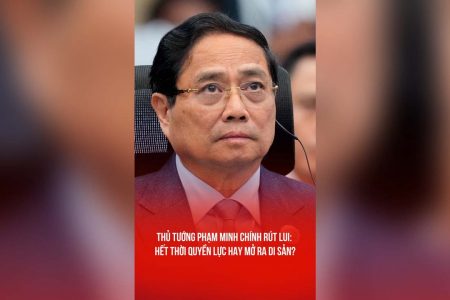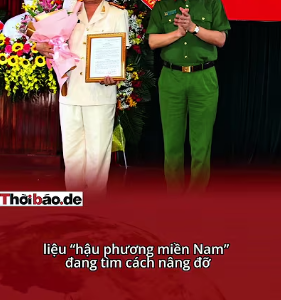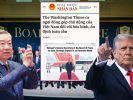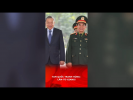
In Vietnam over the past years, the Hanoi government has increased its repression of dissident voices, vigorously arresting and sentencing harshly opposing voices who openly and bluntly criticize the Communist Party of Vietnam (CPV) and its government. The regime has intensified suppression before the 13th National Congress of the party.
A period of time when Vietnam’s human rights situation was considered downhill was also the period when President Donald Trump took power in the US. On January 20, new President Joe Biden took office and has different policies from his predecessor. Will Mr. Biden’s term help contribute to the struggle for democracy-human rights in Vietnam?
The organizations that Radio Free Asia met said that this was an opportunity to open the fighters to a number of new movement trends.
Grace Bui, an employee of The 88 Project, which advocates for prisoners of conscience in a Vietnamese prison, shared that the past time has been a real challenge for the organization in which she joined:
“Grace has worked on human rights under two or three presidents. When it comes to President Trump, for the past four years, the US administration did not interest in this matter. So it’s very difficult to work with the US government on human rights. It is very slow. Although the embassy in Vietnam is doing a very good job, and they report everything local activists report to them. But the decision, speak out or not is from the State Department, not from the US Embassy.”
According to Dr. Nguyen Dinh Thang, director of Board People SOS (BPSOS), the Trump administration paid attention to religious freedom. Understanding each government’s priorities, BPSOS focused their organization’s advocacy efforts on that point. He said:
“During President Trump’s time, they promoted religious freedom around the world. We have partnered with several hundred organizations, large and small in the US, to lobby and contact the transitional team of the new executive, to suggest to them how to continue the policy of the Trump executive in the world to protect freedom of religion or belief. One example where we think the Biden executive will do better or be more concerned is the rights of workers, with an array of anti-trafficking. The second is to require countries cooperating with them, especially Vietnam to comply with international labor rights conventions. Previously in the Obama era, this was focused a lot, but in the Trump era, the US did not pay attention as before, now we think that the Biden government will return to the policy of focusing on the rights of workers. That is an area that we will reopen in the near future.“

In addition to the program emphasizing labor rights, Mr. Thang shared that BPSOS will also promote the US advocacy segment for sanctions under the Global Magnitsky Act. Magnitsky Law provides for sanctions against individuals and officials that the US believes are violating human rights worldwide. It has been applied to corrupt and violent officials in many countries. This is the area that BPSOS has pushed during the presidency of Trump, but the Magnitsky Act has never been applied to Vietnamese officials. Dr. Thang explained:
“Another area we are promoting is how the US must impose individual sanctions on officials who seriously violate human rights, which we call the Global Magnitsky Law. Under President Trump, it was used very strongly and very widely but gives the impression that it is only for opposing countries. And those close regimes that also violate human rights very seriously, the US did not apply these measures. It turned out to be a political tool rather than a human rights protection tool. In Vietnam, for example, we submitted many applications but were not considered. But under President Biden, I hope a change.”
For the Viet Tan Party, an organization that promotes multi-party democracy in Vietnam, it doesn’t matter that the Republican Party or the Democratic Party that rule in the US does not matter. Mr. Hoang Tu Duy, a spokesman for Viet Tan, shared more about the upcoming work plan:
“Viet Tan advocates the fight for a free and democratic Vietnam. To that end, we are willing to work with all Western governments and especially the US government to advocate for human rights and to fight injustice in Vietnam. In fact, I see two major challenges to the movement. The first is political repression. We know a lot of democratic activists have been arrested in the past time, so next time how can we lobby the US government to take stronger and more specific measures on the problem to protect conscience voices. I think the US consulate in Vietnam can be more proactive in monitoring trials, speaking up, visiting the families of prisoners of conscience, going to places like Dong Tam to learn more about human rights violations.“
Mr. Duy also said that the Internet free space is now an opportunity that Viet Tan will continue to deploy, as technology giants like Google and Facebook are being criticized internationally for censoring content on social platforms.
“Given the situation of Internet censorship in the past few years, especially after the Law on Cyber Security of Communist Vietnam, it is time not only the executive but also the lawmakers of the US. How can there be pressure on big companies like Google and Facebook not to cooperate with the Vietnamese Communist on censorship issues? Actually, the role of Internet and technology companies is now being reviewed by many people about their duties and responsibilities to society? Then one of the things I think people agree on is that these companies shouldn’t cooperate with dictatorships for censorship. That is something that we will promote in the future.“
Amnesty International (Amnesty International) has repeatedly mentioned the complicity of giants in the act of suppressing opposing voices online of the Vietnamese government. Amnesty International has created a website titled „Human rights priorities for the Biden administration“ which outlines 80 policy proposals for strengthening human rights around the world. Amnesty, for example, calls for a return of the US to multilateral institutions instead of a unilateral foreign policy as it was during the Trump era.
Amnesty International wrote in a report proposing to President Biden that:
“The US foreign service has previously played a key role in condemning human rights abuses around the world and extending the rights of a special rapporteur to countries whose governments routinely violate human rights, such as Belarus and Eritrea. The US must rely on these achievements to formulate and reverse recent policies that have undermined multilateral progress on human rights.”
In the area of Political Prisoners, Amnesty urged the Biden administration to ensure that the State Department and the embassies speak up for them.
The 88 Project submitted a similar proposal to the State Department. Grace Bui from Bangkok shared that The 88 Project expects from the officials that Biden has and will appoint to the Ministry of Foreign Affairs and other executive mechanisms:
“As for President Biden’s term, they talked a lot about human rights and now Grace is also preparing some requests to be sent in to the State Department via the US Embassy in Vietnam. Grace thinks it will get more attention over the next four years and there is much hope that the US will intervene more in Vietnam’s human rights. Grace has sent some requests for the US government to do something about human rights in Vietnam, which Grace sent them this morning.“
The list of requests is plentiful, says Grace, but most importantly requires the US State Department to regularly send diplomats to prisons to inquire about the situation of political prisoners, as well as demanding that the Vietnamese government allow them to attend court hearings of dissenting voices. The 88 Project also urged the Department of State to assist in claiming the release of a few cases, such as for prisoner of conscience Tran Huynh Duy Thuc, and ensure that prisoners have the option of staying in the country and not automatically expelled to foreign countries when being released.
“One more thing I am talking about is a fair court. Now that they are arrested, they are kept incommunicado in prison during the investigation period which lasts from four months to years. So the Vietnamese government has to shorten that time and have courts that are fair to them, not show trials.”
In the term of President Trump, the US has pursued an „America First“ policy and as a result, the fighters for human rights democracy in other countries have been more flexible in building other “allied” relationships. This is probably a lesson for the future. Grace Bui said The 88 Project plans to work with embassies of countries in Europe and other countries more.
“The past four years have shown that Washington is an important but not so essential leader in human rights. Many other governments see Trump’s withdrawal as an incentive to be more determined, rather than their desperate. And they have strengthened the protection of human rights.“
A few days before President Biden took office, on January 13, Human Rights Watch issued a press release calling for the Biden administration to return to work with allies to protect human rights around the world.
The activists say they cannot be sure that Mr. Biden will be tougher with Vietnam on human rights issues. However, human rights are one of the concerns of the new foreign minister of President Biden, Mr. Antony Blinken:
“We are in a group of over 200 organizations to lobby the United States for sanctions. The coordinating organization is Human Rights First, and Mr. Blinken is the vice president. Then we believe that Secretary Blinken will take a more neutral view.”
Thoibao.de (Translated)


























